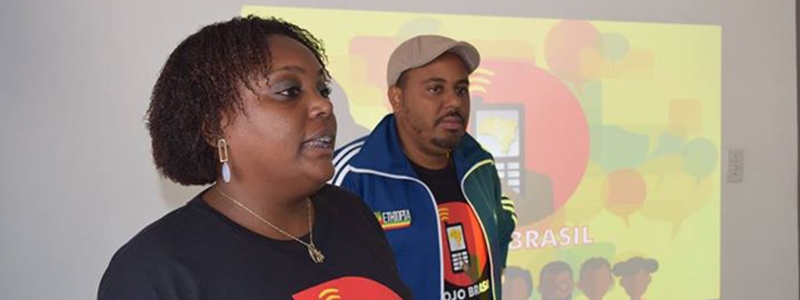Vojo Brazil
IME (Ethnic Media Institute) and the Center for Civic Media of MIT
Country: Brazil
Visit Website
Innovation: Incremental
Where it happens: Home | Community | School
Trends: 21st Century Skills | Hands-on Learning | Community Based Learning
The use of VOIP technology makes the transmission of information possible without access to the internet. Youngsters in communities of quilombolas (descendants of Afro-Brazilian slaves who escaped from slave plantations) on Ilha de Maré, in Bahia, learn how to use the tool and, as a result, can produce information about their community.
Country: Brazil
Visit Website
Innovation: Incremental
Where it happens: Home | Community | School
Trends: 21st Century Skills | Hands-on Learning | Community Based Learning
The use of VOIP technology makes the transmission of information possible without access to the internet. Youngsters in communities of quilombolas (descendants of Afro-Brazilian slaves who escaped from slave plantations) on Ilha de Maré, in Bahia, learn how to use the tool and, as a result, can produce information about their community.
Country: Brazil
Visit Website





